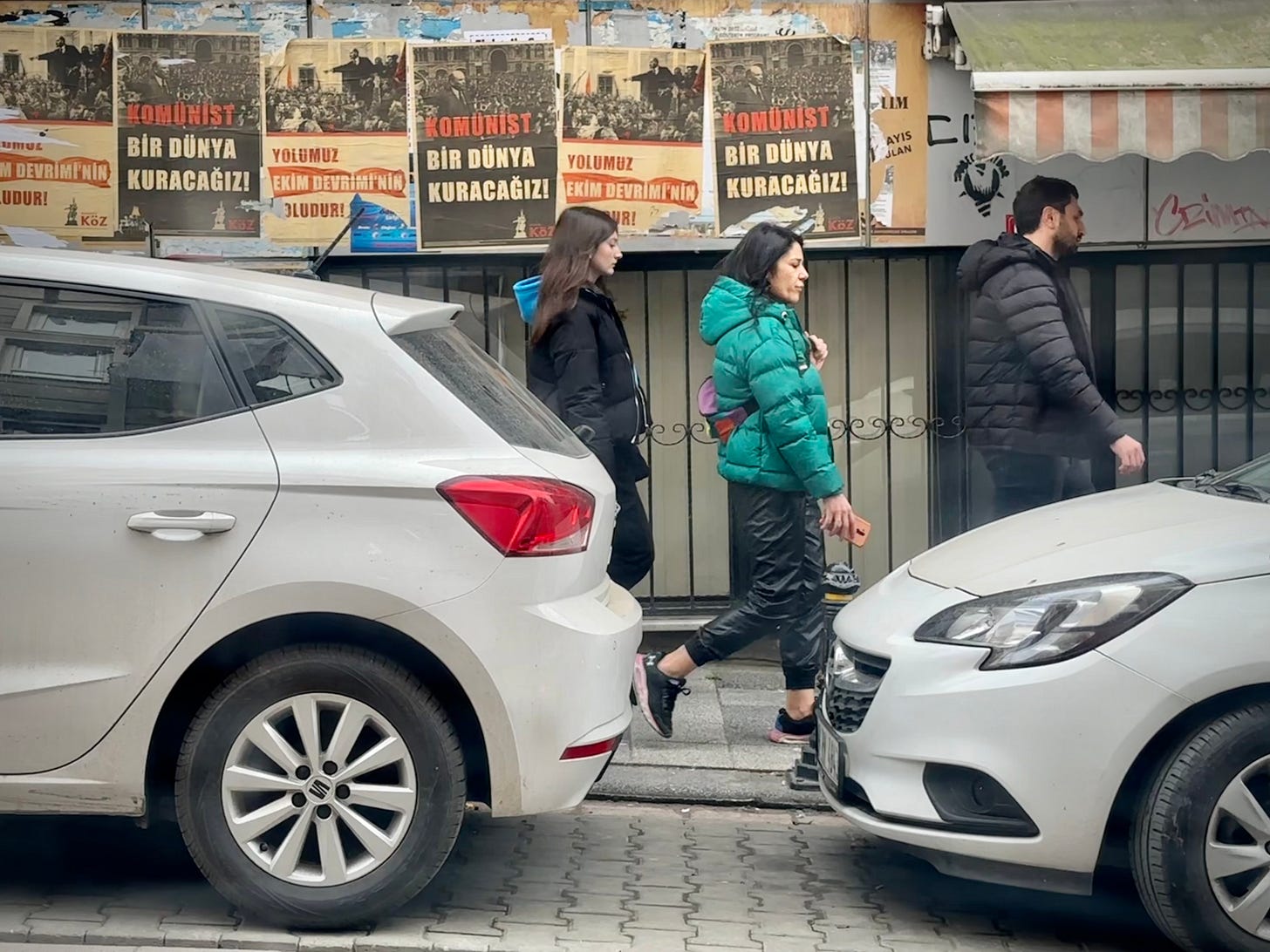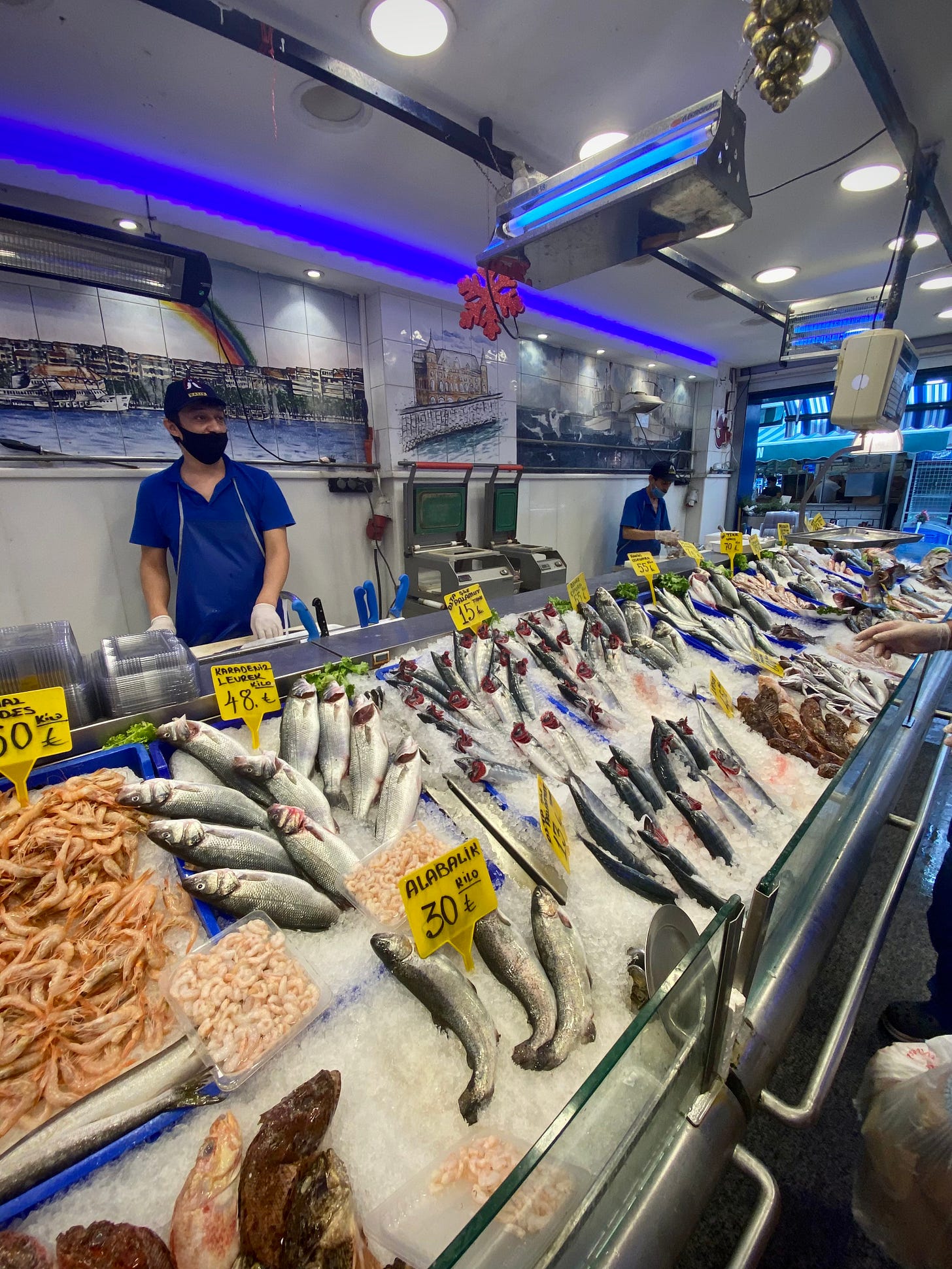
William F. Griswold—a pseudonym—is a US citizen who is married to a Turk and spends several months every year in Turkey. He wrote to me in the wake of the earthquake to say that he’d appreciated our newsletters on the topic.
When I learned he was in Istanbul right now, I asked him: What’s the mood like? What are people saying about the government and its preparation for and response to the earthquake?
He replied:
The mood in Istanbul is grim. People I talk to are wondering what their taxes are being used for, if not to keep citizens safe and help them after a disaster. I don’t meet any young people who speak English who want to stay in Turkey. Everyone seems to have designs on leaving for the US or Europe. Plans for the future seldom seem to involve making a life here. Since I was last here in June, the lira has fallen by about 8 percent compared to the dollar, but many prices (groceries, transportation, dining out, appliances) are considerably higher than they were at that time. Some people seem to have a muted optimism about the presidential election in June, but there’s also concern about what shenanigans Erdoğan and the AKP will pull in order to hang onto power.
I replied that it was easy for me to imagine how bleak the mood must be. “I keep thinking,” I wrote,
of young people I knew, people with whom I’ve lost touch now, but their faces have been coming back to me these past weeks—like the woman I wrote about in this article:
The Sound of Turkey Clapping. Thoughts on the recent elections, mostly ignored around the world.1
I wonder how they are. I wonder whether they’ve lost friends or family.
There was already a considerable sentiment among young people I met, ten years ago, that Turkey was hopeless. Quite a few wanted to leave and asked me for advice about how. But that sentiment wasn’t unrelieved, and some were excited, entrepreneurial, and optimistic about their futures.
But the situation is now worse in Turkey, and worse, too, for Turks who want to leave—the doors to the West have slammed shut. Many of those once-optimistic kids must no longer feel that way, and the ones who wanted out back then must now feel they’re in a madhouse or a prison. The brain drain has already skimmed off Turkey’s top talent, and they’ve been left behind with the lunatics. I feel for them.
They’re right to worry about what “shenanigans” Erdoğan and the AKP will pull. I hope that highly distracted foreign policy apparatuses in the West are paying attention to this. I hope that they’re—for once—ready to play hardball if he tries to cancel or otherwise pervert the elections.
Are you encountering anyone who still supports him? If so, what do they say? Are you seeing any sort of organization or effort to improve Istanbul’s seismic preparedness? Are people talking about moving to a better building, or reinforcing the buildings they live in, or making any kind of emergency plan, in any way? Or does that iron wall of fatalism—and the instinct to wait for the state to do it—remain impassable?
If you’d like to send us a dispatch from Turkey, we’d certainly be keen to include it in our updates. My Turkish friends are too afraid to write for us.
I was therefore delighted when several days ago I received the excellent dispatch below, which answers all of my questions.

MODA, KADIKÖY
Walking around in Istanbul, the mood is subdued. Grim. It reminds me of the immediate aftermath of the 9/11 attacks in the United States—palpable fear and uncertainty in the air, a perpetual pregnant pause, with everyone waiting for the next shoe to drop. Except then, the threat was human and foreign; in Istanbul today, the enemy is the concrete and steel of your apartment building, it’s the bricks of your office or your child’s school, it’s the ground beneath your feet. It’s those things, and it’s the fecklessness and corruption of the Turks’ own government.
Keep reading with a 7-day free trial
Subscribe to The Cosmopolitan Globalist to keep reading this post and get 7 days of free access to the full post archives.



